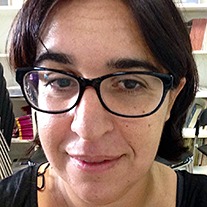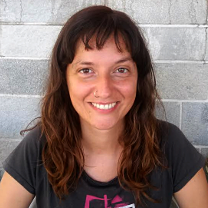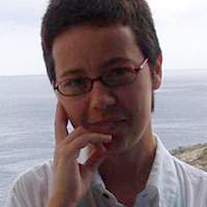Social situation in Greece
Before the economic crisis, in Greece there were intense income inequalities, the risk of poverty tended to be one of the highest in the EU and the system of social protection was at large ineffective. However the economic crisis and the austerity measures have had a deep impact on worsening the social conditions, including a phenomenal rise in unemployment, severe cuts in private and public sector salaries, the deregulation of the labour market and the spread of precarization in all sectors of the economy. The already malfunctioning welfare state structures have been undermined as public spending was reduced and cuts were imposed in sectors such as health, social security, education, benefits and protection. The unemployed, the precarious workers, families with children, migrant and ethnic minorities, but also the “new poor” spread especially in the urban centers where homelessness has risen significantly. While previously dominant political parties have created coalitions in order to stay in power and fight against the rising left wing, political tensions have intensified and left wing movements as well as racist and xenophobic practices multiplied. In Greece, household resilience becomes an important concept that needs to be further investigated in relation to new groups at risk of poverty, but also the weakening of the already disempowered welfare state. While some traditional strategies of escaping previous crises and hardship, such as reliance to extended family networks or emigration are mobilized, new forms of solidarity, mutual assistance and self-organization emerge to supplement and cover for the lack of welfare structures and the underdevelopment of the third sector.
Panteion University of Social and Political Sciences
The Panteion University of Social and Political Sciences (located in Syggrou Avenue 136, Athens 17671, Greece) is a public higher education institution of international reputation. As a research university, it offers an intellectually stimulating environment that fosters rigorous academic learning and innovative research. Founded in 1927, it is among the three oldest universities of social and political sciences in Europe. It comprises four (4) Schools/faculties, ten (10) Departments, and eighteen (8) Research Centres. Student population: more than 16.000 registered undergraduate and 500 Master’s and Ph.D. students. It is the only higher education institution in Greece to focus exclusively on Social and Political Sciences. Its academic departments cover a wide range of scientific disciplines (i.e., Sociology, Social Anthropology, Psychology) and interdisciplinary fields (i.e., International and European Studies, Culture and Media). Panteion is also widely acknowledged to be a university of excellence in teaching and research in the field of Gender Studies. Panteion University has coordinated and participated in numerous European Commission research projects, such as European Framework Programs (FP6, FP7). It also participates in several European Union programs, such as: ERASMUS, Jean Monnet, Leonardo da Vinci programme, EQUAL Community Initiative, etc.
Website Panteion University of Social and Political Science
The Team
Relevant publications
- Athena Athanasiou (2013): The Performative in the Political. Cambridge: Polity, Dispossession (with Judith Butler)
- Athena Athanasiou (2012): Crisis as a “state of emergency”: Critiques and resistances. Athens: Savvalas, (in Greek).
- Athena Athanasiou (2014): Governing for the market: Emergencies and emergences in power and subjectivity, in Crisis-Scapes: Athens and Beyond. Athens, p. 72-77.
- Athena Athanasiou (2012): Who’ is that name? Subjects of gender and queer resistance, or the desire to contest, European Journal of English Studies, Vol. 16, no. 3, p. 199-213.
- Athena Athanasiou (2011): Becoming precarious through regimes of gender, capital and nation, in “Beyond the ‘Greek Crisis’: Histories, Rhetorics, Politics” (ed. Penelope Papailias), Hot Spots Forum, Cultural Anthropology
http://www.culanth.org/?=node/445 - Athena Athanasiou: Precarious intensities: Gendered bodies in the streets and squares of Greece, forthcoming in Signs: Journal of Women in Culture and Society.
- Athena Athanasiou (2007): Life at the Limit: Essays on Gender, Body and Biopolitics. Athens: Ekkremes, (in Greek).
Relevant previous projects
- Seventh Framework Program (FP7) Social Sciences and Humanities. Activity: The Citizen in the European Union, Area: Participation and citizenship in Europe, Topic: Citizens’ resilience in times of crisis. Title: “Patterns of Resilience during Socioeconomic Crises among Households in Europe”, Project Acronym RESCuE. Duration: 2014-2017. Coordinator: Dr. Markus Promberger (Institut für Arbeitsmarkt und Berufsforschung). Participating countries: Finland, Germany, Greece, Ireland, Poland, Portugal, Spain, Turkey, United Kingdom (2014-17).
- Sixth Framework Program (FP6). Research area 7: “New forms of citizenship and cultural identities”, research program: “VEIL. Values, Equality and Difference in Liberal Democracies: Debates about Female Muslim Headscarves in Europe”. Comparative interdisciplinary analysis of gender, migration and state-religious policies in contemporary Europe. Participating countries: Austria, Britain, Denmark, France, Germany, Greece, Netherlands, Turkey (2006-09).
- Columbia University, Center for the Study of Social Difference. Program “Women Creating Change”, working group “Re-thinking Vulnerability: Feminism and Social Change,” directed by Judith Butler. Fellow. (2013-).






